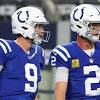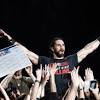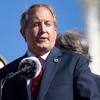Police Arrest Columbia Protesters Occupying Hamilton Hall: Live ...

At the University of California, Los Angeles, the sprawling pro-Palestinian encampment stands out for at least two reasons: its tight cordon of metal barriers and wooden pallets — and the daily presence of counterprotesters waving Israeli flags.
Few campuses have had dueling protests as intense as the ones at U.C.L.A. ever since demonstrators established their encampment Thursday in the shadow of Royce Hall, the signature brick building whose towers have graced many a school brochure.
The faceoffs have tested the patience of U.C.L.A. leaders, who are following a systemwide policy of avoiding law enforcement action unless “absolutely necessary to protect the physical safety of our campus community.” That approach stands in contrast to campuses like the University of Southern California across town and the University of Texas at Austin, where protesters have been arrested for refusing to leave.
On Sunday, the Israeli American Council, which has denounced pro-Palestinian protests on college campuses as “overtly antisemitic,” hosted a rally at U.C.L.A. that drew thousands of people. Organizers set up a stage and a large screen near the pro-Palestinian encampment, then led prayers, hosted speakers and welcomed performers who sang Israeli pop songs.
But tempers also flared, with shouting matches and scuffles between the two sides, including altercations after an encampment barrier was breached.
“UCLA has a long history of being a place of peaceful protest, and we are heartbroken about the violence that broke out,” Mary Osako, the university’s vice chancellor for strategic communications, said in a statement that day, vowing to increase security.
On Monday night, another fight broke out between two groups of protesters after about 60 pro-Israel demonstrators attempted to enter the pro-Palestinian encampment. Campus police had to break up the dispute.
“While the demonstration remains largely peaceful, our campus must remain a place where we treat one another with respect and recognize our shared humanity — not a place where we devolve into violence and bullying,” Ms. Osako said in another statement.
Pro-Israeli protesters began arriving at the encampment almost immediately after it was first set up. For the past several days, they have waved Israeli flags, spoken through megaphones, played music through loudspeakers and held up images of some of the hostages captured by Hamas on Oct. 7.
On Tuesday, a large screen near the encampment played footage from the Hamas-led terrorist attack on Israel. At noon, a plane flying a “Jewish Lives Matter” banner circled the campus.
Many Jewish groups say the campus protests have created a climate hostile toward Jewish students. The Israeli American Council has responded by holding “support rallies” across the nation similar to the one Sunday at U.C.L.A., including events in Atlanta and Orange County, Calif., on Wednesday.
Asher Taxon, a freshman at U.C.L.A. who is Jewish, said the Sunday rally gave him a much-needed boost.
“It was great, it felt like we’re still here and that they can’t get rid of us,” Mr. Taxon said. “It was nice seeing other Jews and Israelis singing and dancing and showing that we are supported.”
Pro-Palestinian demonstrators said Tuesday that the daily counter-demonstrations at U.C.L.A. had been emotionally and mentally exhausting.
The “actions and behavior of these counterprotesters is indicative of the treatment of the people on the ground in Gaza,” said Kaia Shah, a researcher and recent U.C.L.A. graduate. “What this has done to the people in our encampment is made them even more passionate about our cause.”
By Tuesday afternoon, a truckload of additional metal gates arrived near the encampment site. It was not immediately clear who had provided them.


 United States
United States Argentina
Argentina  Australia
Australia  Austria
Austria  Brazil
Brazil  Canada
Canada  Chile
Chile  Czechia
Czechia  France
France  Germany
Germany  Greece
Greece  Italy
Italy  Mexico
Mexico  New Zealand
New Zealand  Nigeria
Nigeria  Norway
Norway  Poland
Poland  Portugal
Portugal  Sweden
Sweden  Switzerland
Switzerland  United Kingdom
United Kingdom 

































